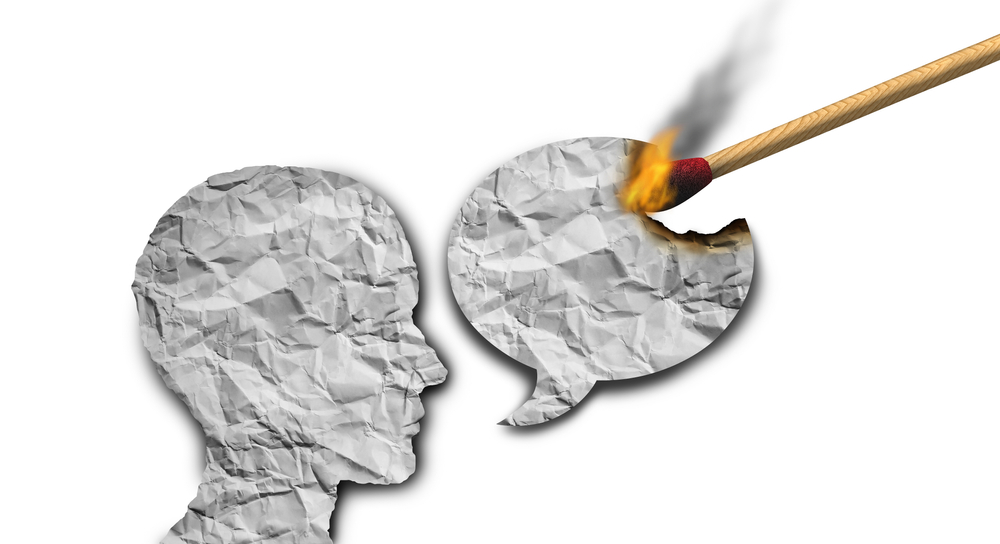There are some things that are hard to forget, some places that the mind keeps returning to no matter how far one grows in life. Two of such images come to mind, both of which happened in the secondary school I attended in Lagos. The first one involved a slap. A hot, dirty slap. Thankfully I was neither the slapper nor the slapped but see ehn, I saw stars on behalf of the receiver. What I vaguely remember from that incident, by which I mean the life altering slap, was that someone had said something to somebody else, and the somebody else in question was opposed to it. The resulting effect was the dirty slap on the dissenters back. (Yes, it was not even a cheek slap, it was a back slap—those guys that land like a thud, as if someone pushed you off a three-story building.
The second image involves me, but thankfully, there was no slap involved. See, my chi is alive because, at eleven years old, when the incident happened, I did not have the physical stamina to take slaps of such nature, especially from non-authority figures. (There’s irony in this but I suspect that’s story for another article.) Anyway, a group of girls were walking towards the dining hall, after school. They were talking about something; I can’t remember the topic specifically but I’m sure it was urgent but also stupid. I decided to jump into the conversation when nobody asked me. Omo! The kind of tongue-lashing I got ehn, I never expected it. Lol.
Anyway, why did I share these two stories, besides randomly remembering the trauma of boarding school? Well, it was because of the latest essay shared by Chimamanda Adichie. Hold on, if you think this is one of those articles where the writer takes a stand, you are wrong o. There’s just something I want to talk about a little bit. But first, what was the article about? Basically CNA, (this is an abbreviation of her full name because laziness) wrote a three-part essay where she called out to Nigerian writers who betrayed her trust and friendship. Forget this summary, the essay was scandalous, (check out her website for details) and I won’t even lie, it is just the kind of literary gossip I tend to enjoy.
As expected, after reading the essay, the internet became abuzz with many kinds of postulations by people, some of whom believed that CNA is transphobic and wishes trans women death. Omo. On the other hand, there are people who believe that the people CNA called out are at best opportunistic and disingenuous to the movement. Thankfully, this is not a multi-choice question with a single answer, we don’t necessary get to pick a side of that online war, contrary to what many people are touting on social media.
What I want to talk about though is the part of the CNA that really stood out to me—the cost of dissent. See ehn, the interesting thing about facing bullies in high school is that everybody grows up, both the bullied and the bullies. There are those who will always disagree when they don’t understand the issues, and there are those who will always come at you with words. And while people are no longer back-slapping folks who disagree with them, we have to say that there are spaces where dissent has such a visceral risk associated with it.
The issue I see prevalent online is that we have stopped responding to ideas with ideas. We have devised tools to silence people who do not agree with us, who think differently. But the thing about pushing back against dissent is that it does not also lead to inclusivity, or advocacy, but to a different kind of repression, a cloaking, a masking. At best silence achieves a false alliance. Deep down, people still think what they think, still act on what they think. You cannot slap conviction out of somebody or cancel your way into their stream of consciousness. Such a posture, like what we see online, is not even about advocacy or pursuit of truth, it is about punishment. Interestingly, it is also about pride.
To be contradicted is to be rejected, and yes, like some of the accusations against CNA, it can also be to be endangered, where the difference in such schematics can literally be life and death. But let us not even lie when you attack a person for dissenting, for thinking differently from you, whether physical or otherwise, you play into a kind of weaponized social power, one that removes the problem from your immediate space, whether this space is physical or online. But in the end, you change nothing. If anything, you only empower the dissenter to pick up their own stone and hurl back.
As they say in certain religious circles, it is fire for fire. Hopefully everybody go dey alright.
